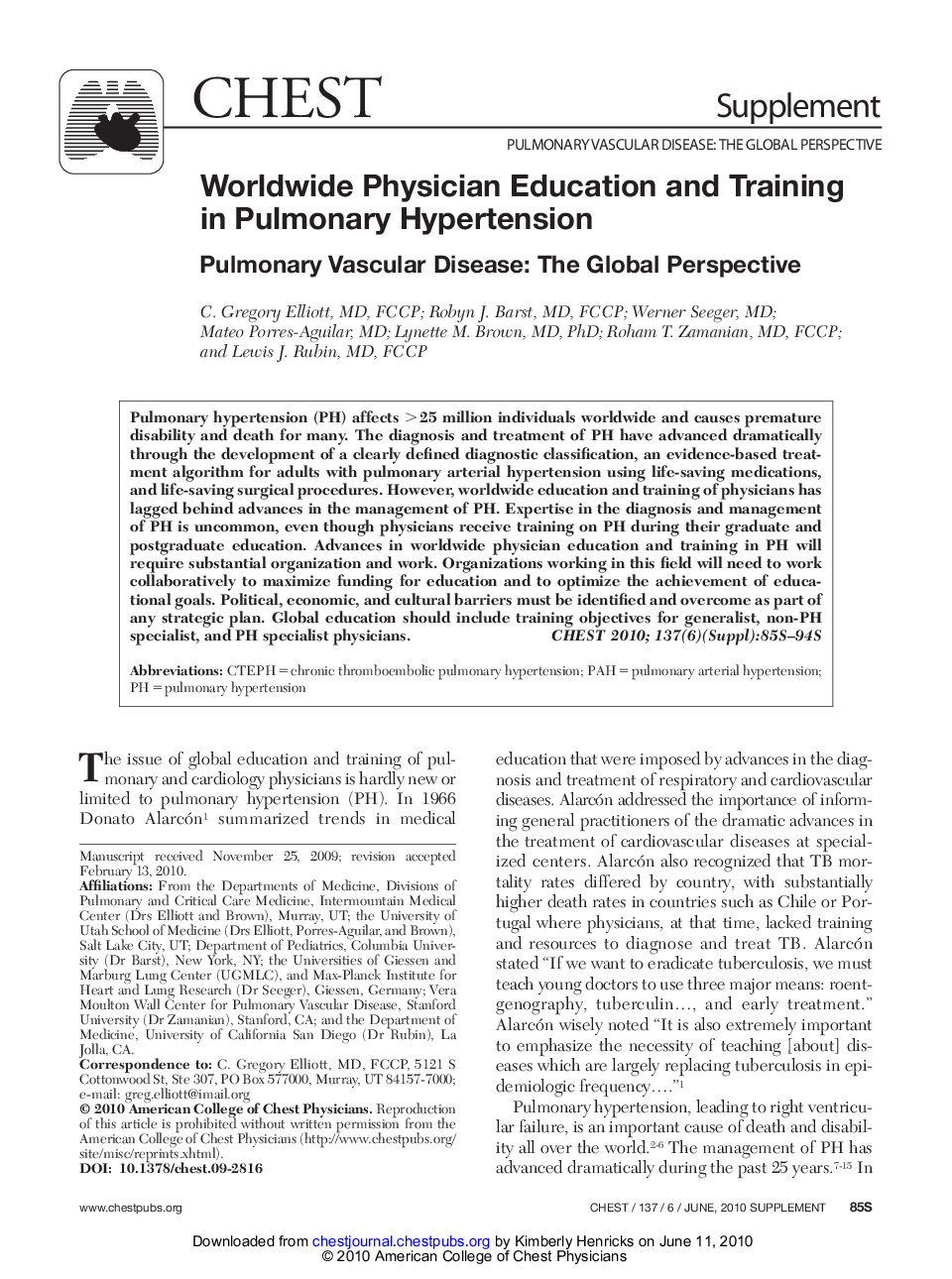| Article ID | Journal | Published Year | Pages | File Type |
|---|---|---|---|---|
| 2902781 | Chest | 2010 | 10 Pages |
Abstract
Pulmonary hypertension (PH) affects > 25 million individuals worldwide and causes premature disability and death for many. The diagnosis and treatment of PH have advanced dramatically through the development of a clearly defined diagnostic classification, an evidence-based treatment algorithm for adults with pulmonary arterial hypertension using life-saving medications, and life-saving surgical procedures. However, worldwide education and training of physicians has lagged behind advances in the management of PH. Expertise in the diagnosis and management of PH is uncommon, even though physicians receive training on PH during their graduate and postgraduate education. Advances in worldwide physician education and training in PH will require substantial organization and work. Organizations working in this field will need to work collaboratively to maximize funding for education and to optimize the achievement of educational goals. Political, economic, and cultural barriers must be identified and overcome as part of any strategic plan. Global education should include training objectives for generalist, non-PH specialist, and PH specialist physicians.
Related Topics
Health Sciences
Medicine and Dentistry
Cardiology and Cardiovascular Medicine
Authors
Elliott MD, FCCP, Barst MD, FCCP, Seeger MD, Porres-Aguilar MD, Brown MD, PhD, Zamanian MD, FCCP, Rubin MD, FCCP,
